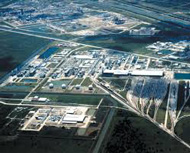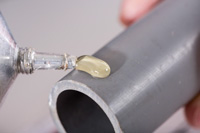PRA Chinese
Rubber Journal Asia Injection Moulding Asia Energy, Oil & Gas Asia
VISIT OUR OTHER SITES:
PRA Chinese
Rubber Journal Asia
Injection Moulding Asia
Energy, Oil & Gas Asia
Plant Set-ups: Shintech to build 2nd PVC plant in US; Perstorp to debottleneck caprolactone plants in UK

Shintech Inc. (a subsidiary of Shin-Etsu Chemical Co.,in the US), will construct a new integrated plant to produce PVC from salt, with an investment of US$1.5 billion. The new plant will be on industrial site developed by Shintech, located next to Shintech's existing plant in Plaquemine, Louisiana.
Shintech obtained permits to build a plant capable of producing 860,000 tonnes/year of vinyl chloride monomer (VCM), the raw material of PVC, and 660,000 tonnes/year of caustic soda, and has commenced construction of the first phase of the plan. The first phase will increase production capacity by 290,000 tonnes/year of PVC and 270,000 tonnes/year of caustic soda.
Completion of the construction is targeted for the end of 2020. Annual production capacity after the completion of the first phase will be 7.14 billion 3,240,000 tonnes/year of PVC and 1,570,000 tonnes of caustic soda per year.
Shintech, which commenced PVC production in the state of Texas in 1974, established its business foundation in the country where country risk appeared to be relatively low. The company owns a vast amount of property in Plaquemine, Louisiana. Shintech has received strong support and understanding from both state and local governments in Louisiana while establishing favourable relationships with local communities.
When Shintech decided to construct an integrated production facility for PVC in Louisiana in 2004, very few expected that shale gas and shale oil would turn around the energy and feedstock situation in the US the way it turns out today. The advancement of shale gas and shale oil thereafter in the US has been astonishing. At present, ethylene using local natural gas as a raw material has established its competitive advantage in comparison with ethylene using highly priced crude oil as a raw material, and this has boosted Shintech's competitiveness in terms of procurement costs.
Since the completion of the integrated PVC production plant in Plaquemine, Louisiana in 2008, Shintech has expanded and raised production capacity three times and is now building an ethylene plant. Meanwhile, world demand for PVC has increased almost in line with global GDP growth. According to industry data, world demand for PVC reached 43 million tonnes/year in 2017. In the meantime, lagging PVC supply capacity compared to growth in demand increases the operation rate of PVC producing facilities. It is expected that this trend will continue in the future. Similarly, global demand of 77 million tons of caustic soda per year in 2017 has recently been outpacing supply, and this trend is expected to continue.
Shintech says it will leverage the advantage of favourable raw material economics in the US to steadily meet increasing demand in the U.S. and the rest of the world, with plans to further increase its capacity in a timely manner.

In other news, Perstorp says it has made significant progress in ‘future-proofing’ its Capa caprolactone monomer plant in Warrington, UK. The monomer plant will be made more robust to ensure an even more reliable supply for customers around the world.
This investment will also facilitate future debottlenecking to support market growth. Perstorp is building in the capability for the plant to run with a higher capacity, which allows for increased production volumes in the future. In addition, Perstorp is now starting to debottleneck its Capa derivatives production units at Warrington, UK to further support customer demand.
“We continue to see strong confidence and demand in the caprolactone market, and in particular for our range of caprolactone derivatives marketed under the names Capa Thermoplastics and Capa Polyols. In order to provide high quality products and a partnership that strengthens our customers’ businesses, we strive to increase even further the reliability of manufacturing and supply aimed at the market”, says Stephen Lewis, Vice President Business Unit Caprolactones.
“In particular, the strong growth is largely driven by our customers’ recognition of the unique properties and performance advantages of our Capa product range. Capa Thermoplastics are utilised in diverse application areas such as Adhesives and Sealants, Medical, Bioplastics and Footwear. An increasing demand leads to a strong need to invest in additional capacity, in order to ensure we meet our customer’s future requirements and growth plans in a timely manner,” Lewis concluded.
(PRA)Subscribe to Get the Latest Updates from PRA Please click here
Copyright (c) 2018 www.plasticsandrubberasia.com. All rights reserved.






















































